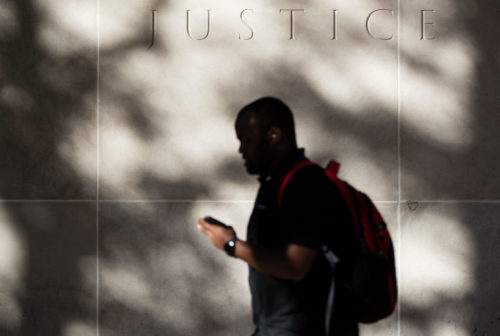Speaking Black Dialect in Courtrooms Can Have Striking Consequences
Share
Explore Our Galleries
Breaking News!
Today's news and culture by Black and other reporters in the Black and mainstream media.
Ways to Support ABHM?
By John Eligon, The New York Times

“He don’t be in that neighborhood.”
When one court reporter in Philadelphia transcribed that phrase, it turned into this: “We going to be in this neighborhood.” In other words, the opposite of what the phrase actually meant — that someone is not usually in a neighborhood.
That was just one transcription error captured in a soon-to-be published study that found court reporters in Philadelphia regularly made errors in transcribing sentences that were spoken in a dialect that linguists term African-American English.
Researchers played audio recordings of a series of sentences spoken in African-American English and asked 27 stenographers who work in courthouses in Philadelphia to transcribe them. On average, the reporters made errors in two out of every five sentences, according to the study.
The findings could have far-reaching consequences, as errors or misinterpretations in courtroom transcripts can influence the official court record in ways that are harmful to defendants, researchers and lawyers said.
“The larger implication is that people are not being afforded a sense of fairness and justice because the system is not responding to their language,” said Anthony L. Ricco, a New York-based criminal defense lawyer, when told of the study’s findings.
Decades of research has shown that the way some black people talk could play a role in their ability to secure things like employment or housing. The new study, scheduled for publication in June in the linguistic journal Language, provides insight on how using black dialect could also impact African-Americans in courtrooms…
Read full article here.
Learn more here
More Breaking News here
View more galleries from the ABHM here











Comments Are Welcome
Note: We moderate submissions in order to create a space for meaningful dialogue, a space where museum visitors – adults and youth –– can exchange informed, thoughtful, and relevant comments that add value to our exhibits.
Racial slurs, personal attacks, obscenity, profanity, and SHOUTING do not meet the above standard. Such comments are posted in the exhibit Hateful Speech. Commercial promotions, impersonations, and incoherent comments likewise fail to meet our goals, so will not be posted. Submissions longer than 120 words will be shortened.
See our full Comments Policy here.